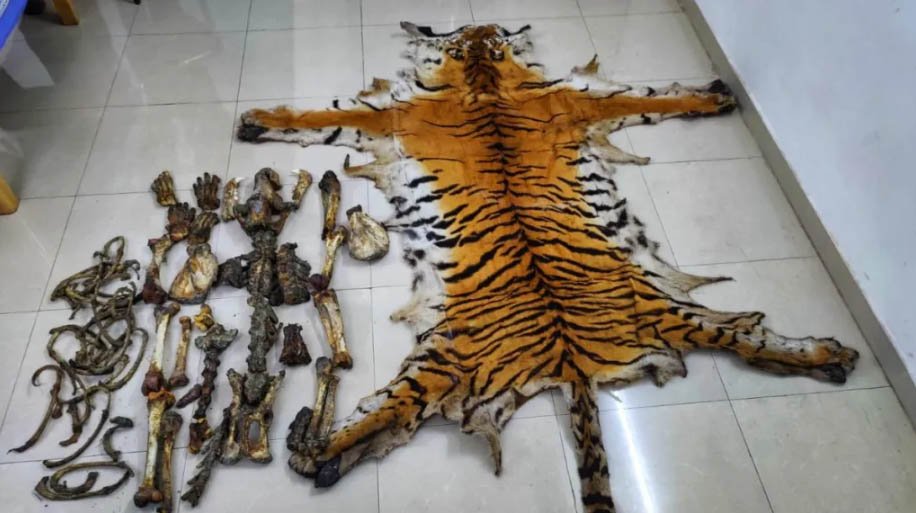The DFO has not taken steps to increase patrolling, which allows poachers to operate with impunity
Guwahati: A Royal Bengal Tiger that was rescued from Umananda Island in Guwahati last year and released in Nameri National Park in Assam’s Sonitpur district has allegedly been poached.
A wildlife expert claimed, the tiger skin, paws, and bones seized at Itakhola in Sonitpur district on July 8 are that of the Royal Bengal tiger, which was released in Nameri on December 25 last year.
“The seized tiger skin has a similarity to the tiger that was rescued and released in the Nameri National Park. The seized tiger skin was found to have a unique marking on its face, which is also the same marking that the rescued tiger had. This suggests that the seized tiger skin is likely from the same tiger that was rescued and released,” he claimed.
“The tiger skin was seized from Itakhola in Sonitpur district, which is close to Nameri National Park. This suggests that the tiger was killed in or near the park,” he added.
However, the forest department has not yet confirmed that the seized tiger skin is from the same tiger that was rescued and released.
Three persons were arrested by the Directorate of Revenue Intelligence (DRI) officials with the tiger’s body parts near Itakhola. Of the three arrested, two are from Assam and one from Arunachal Pradesh.
The Royal Bengal tiger was believed to have strayed out of Orang National Park and reached Umananda by swimming across the Brahmaputra last year. However, the forest department released it in Nameri instead of Orang, as the latter has a higher tiger population.
“The decision to release it in Nameri was taken after considering that the park has fewer tiger population,” Assam state zoo DFO Ashwini Kuma had said.
According to government data, Nameri National Park has just three tigers.
Wildlife activists have blamed the Divisional Forest Officer (DFO) of Western Assam Wildlife Division for the tiger’s death. They say that the lack of patrolling in the tiger reserve makes it easy for poachers to operate.
“The lack of patrolling in the tiger reserves makes it easy for poachers to operate. The DFO has not taken steps to increase patrolling, which allows poachers to operate with impunity,” said a wildlife activist, who requested anonymity.
They also allege that the DFO has allowed illegal sand and stone mining on the Jia Bharali River, which flows through Nameri National Park.
“The illegal sand and stone mining has been going on for a long time, and it has caused significant damage to the river bank. It has caused massive erosion. However, DFO and other forest officials have not taken any steps to stop it,” said a local.
Earlier in 2021, Northeast Now reported that illegal stone mining was being carried out inside the national park by the ‘stone mafia’ with the alleged patronage of some top forest officials and political leaders.

